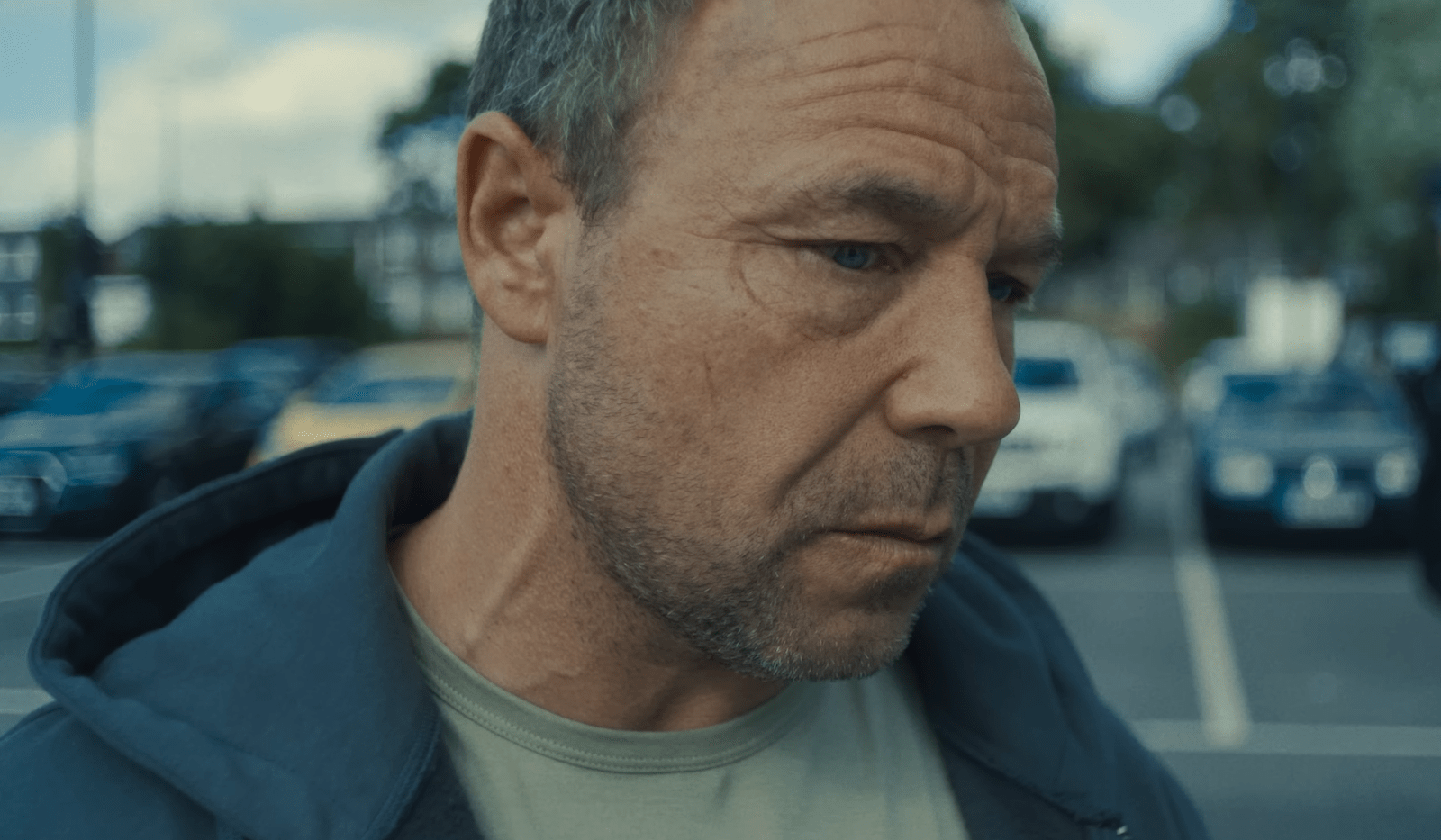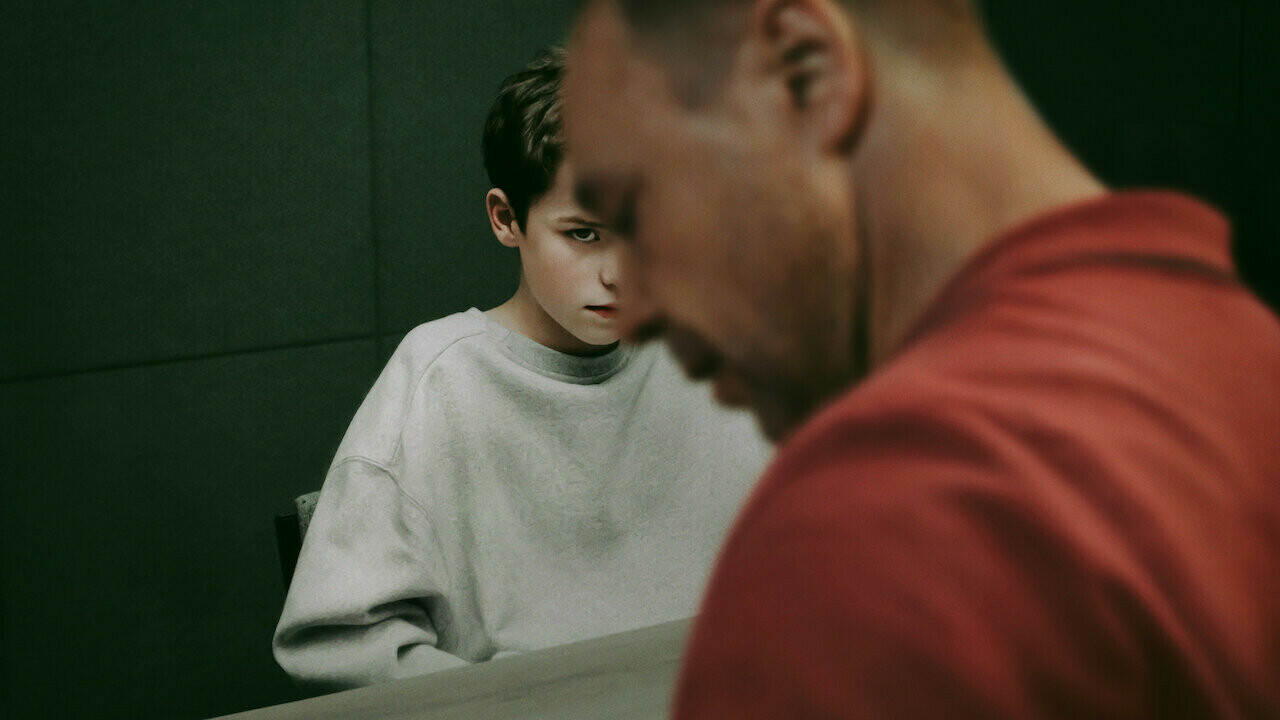Review: Adolescence is a masterful investigation of misogyny
I am a big fan of director Philip Barantini. He worked with actor Stephen Graham to make Boiling Point, one of 2021’s best movies. The one-shot film shows how mentally taxing it can be to work in the kitchen of a high-end restaurant, and viewers with very stressful jobs may easily be able to relate to the fictional staff as they struggle to serve customers during a busy holiday shift. I was very pleasantly surprised to learn that Barantini and Graham had come together to deliver a new show called Adolescence, which released on Netflix on March 13.
I went in to it blind, knowing only that it was about a child accused of a serious crime. But while it begins as a standard police procedural, it evolves into an exploration of bullying and internet-fuelled misogyny that compels viewers to reckon with the toxicity with which children nowadays must contend.
The show begins with detectives Luke Bascombe (Ashley Walters) and Misha Frank (Faye Marsay) leading a frantic raid on the Miller family’s house to arrest the most unthinkable of suspects — a 13-year-old boy named Jamie (Owen Cooper). They take Jamie to the police station, where he and his family must navigate the bureaucracy of their surroundings while in a state of shock. The crime for which Jamie is suspected is only revealed in the final third of the episode, which concludes with a shock that obviates any curiosity surrounding whether he is guilty or not.

Episodes two, three and four shift their focus away from the specifics of the crime to deal with the sociocultural environment that led to it. In episode two, Bascombe and Frank visit Jamie’s school, and while they make headway in the case, they cannot help but be taken aback by the bleak environment of bullying and aggression in which the children are studying. The trip compels Bascombe to reflect on his relationship with his son who studies at the same school.
Episode three takes place almost entirely within the confines of the detention centre in which Jamie is being held and shows a conversation between him and court-appointed psychologist Briony Ariston (Erin Doherty). The exchange starts off amicably but becomes terrifying as Jamie flies into fits of rage during several moments in the discussion, which is a frank attempt at understanding male entitlement and rage.
Finally, in episode four, we are transported to a moment 13 months after Jamie’s detention. It is the birthday of Jamie’s father, Eddie (Graham), who wants to experience a normal day, but cannot as his neighbours and wider community keep reminding him of his son’s trial. In one of the show’s final moments, he and his wife Manda (Christine Tremarco) have a painfully honest conversation about their parenting and the need to monitor young boys’ internet activity in a world where manospheric influencers are preying on children’s insecurities about masculinity for views and followers.
Like Boiling Point, each episode of Adolescence takes place in one shot. If watched without breaks, the amount of time that passes during a viewing is the same in both the real world and the show’s universe. The result is that viewers feel immersed in the show. When the police are taking Jamie from one part of the station to another, you feel his disorientation and anxiety.

Viewer immersion is particularly important in Adolescence, because it is attempting to understand society’s role — including that of you and I — in allowing young men’s violence against women. Collectively, people are allowing adolescent bullying to be pervasive, while a lack of regulation and oversight means that influencers like Andrew Tate can easily spread unhealthy ideas about masculinity and women online. While the show mentions Tate, Jack Thorne — who co-wrote the show with Graham — has said they did not want to focus on him because he is a very small part of the manosphere.
After watching the show, I decided to search “What is masculinity?” on YouTube to see what sort of content appeared. I was expecting to find videos that engage with the concept of masculinity in an academic, or at least well-informed way, since YouTube is often a source of informative and thoughtful content for me. To my surprise, I learned that, much like Adolescence suggests, we live in an almost dystopian reality where most of the search results are videos in which manospheric influencers shared rigid and misogynistic ideas of men and women.
While I am old enough to reject such videos as unhealthy, I wonder whether young boys stumbling upon them internalise what they are being told and feel the need to act in a way that reflects the manospheric notion of masculinity.

If Adolescence’s intention is to serve as an alarm bell, it had its intended effect on me. Until a week ago, I thought that influencers like Tate existed on the fringes of society, to whom only a small fraction of disaffected young men paid attention. Surely the manosphere does not have wide acceptance? According to Adolescence, like Jamie’s unsuspecting parents, I remained unaware to the reality of the internet today. The manosphere features heavily in content targeted to young boys, and unless we address the issue now, more women will suffer.
Strong acting accompanies assured direction and thoughtful writing to bring the show together. Graham is excellent as Eddie, a father and husband who struggles to reckon with the changes in his life after Jamie’s arrest and contend with his own role in the actions of his son. Graham has consistently delivered good performances in challenging roles, and with the release of Adolescence, he can make a claim for himself as one of the best contemporary actors in English-language film and television.
The standout performance of the show is Cooper’s, who must be commended for his work. In his first acting performance, he managed to bring Jamie to life consistently during continuous, hour-long takes. Acting for the first time is difficult enough, playing the turbulent Jamie harder still, but add to it the need to maintain character for an hour? What we have is a masterclass in acting from a young boy who likely has a very promising career ahead of him.
Adolescence asks very important questions but ultimately leaves it to viewers to come up with answers. In the UK, where the show is set and I live, Adolescence has already prompted a conversation about male rage and violence against young women.

Prime Minister Keir Starmer has backed a proposal to screen the show in schools. Show co-writer Thorpe has called for a ban on smartphones for children, arguing that parents may not be tech-savvy enough to make use of internet parental controls. While radical, his call is similar to a relatively milder legislation approved in Australia in November 2024 which prohibits social media for children under the age of 16.
What Britain does during this moment of reckoning remains to be seen; that the show is encouraging such dialog is itself a monumental achievement. I hope that Pakistanis watch the show and reflect on the male rage and entitlement that is normalised in the country. While watching it is by no means easy, we are all the better for doing so.


Comments